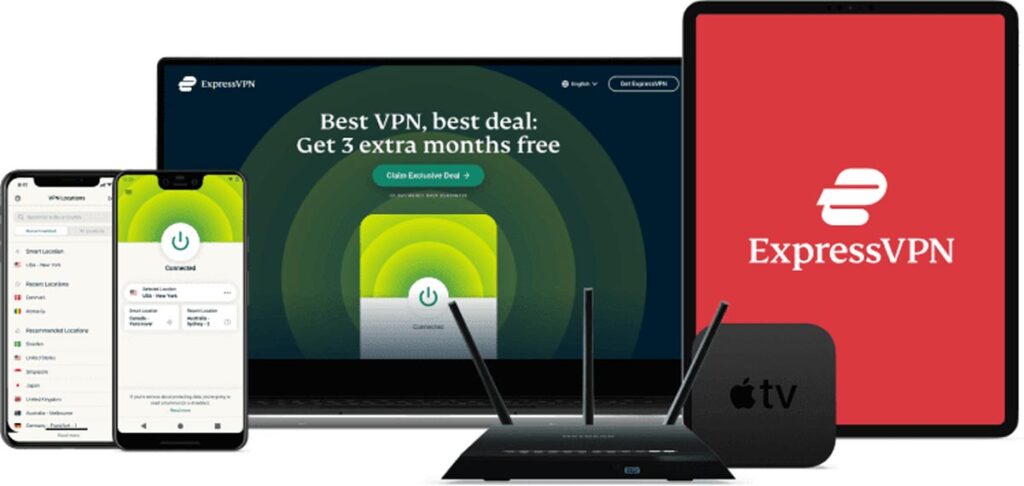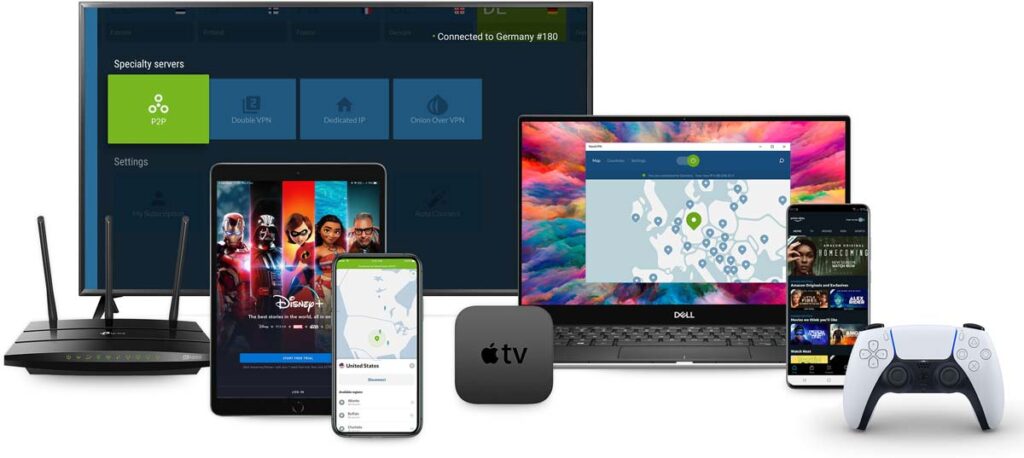How to Avoid VPN Blocks And VPN Detection In 2025?

In an era where digital freedom is both more possible and more restricted than ever, VPNs have become essential tools. Whether you’re trying to bypass geo-restrictions, access blocked content, or simply protect your privacy, a VPN is often the go-to solution.
But there’s a growing challenge: VPN detection and blocks. Platforms like Netflix, Hulu, BBC iPlayer, government websites, and even some public Wi-Fi networks now employ sophisticated methods to detect and block VPN traffic. This has led to a frustrating experience for users who just want secure and unrestricted internet access.
So how do you avoid VPN blocks and continue enjoying your digital freedom without interruptions?
This guide dives deep into why VPNs get blocked, the types of VPN detection methods, and most importantly — how to bypass them and beyond.
Why Are VPNs Blocked In the First Place?
Before we talk about how to beat VPN detection, it’s crucial to understand why certain websites or services block VPNs at all. Here are the main reasons:
1. Licensing and Copyright Agreements
Streaming platforms like Netflix, Hulu, or Disney+ are under contract to restrict content based on regions. They block VPNs to enforce geo-restrictions.
2. Government Censorship
Countries like China, Iran, Russia, and the UAE block VPNs to control information flow, limit access to foreign content, and suppress dissent.
3. Preventing Fraud or Policy Violations
Some websites (e.g., eCommerce or gaming platforms) restrict VPN usage to avoid abuse, such as multiple account creation or region-based pricing hacks.
4. Network Security
Public or corporate networks (like in schools or offices) block VPNs to prevent tunneling that bypasses firewalls or web filters.
How Are VPNs Detected? Common Detection Techniques
Websites and services use various technological methods to identify VPN usage:
🔎 1. IP Address Blacklisting
VPN providers use a pool of shared IP addresses. Once a service detects that a particular IP is linked to a VPN, it gets blacklisted.
🧱 2. Deep Packet Inspection (DPI)
DPI analyzes the metadata of data packets. It can detect encrypted patterns associated with VPN protocols like OpenVPN or WireGuard.
🌐 3. DNS Leaks
If your device’s DNS requests go outside the VPN tunnel, it can expose your real IP or ISP DNS, revealing that you’re using a VPN.
🧩 4. Port Blocking
Some VPN protocols use specific ports (e.g., UDP 1194 for OpenVPN). Blocking these ports disrupts VPN traffic.
📊 5. Traffic Behavior Analysis
A sudden jump in traffic from a specific IP or unusual patterns can trigger VPN detection algorithms.
How to Avoid VPN Blocks and Bypass VPN Detection?
Here’s the core of the article — practical and effective methods to avoid VPN detection:
✅ 1. Use a Premium VPN with Obfuscation Technology
Cheap or free VPNs are often the first to be blocked. Instead, choose a reliable premium VPN like:
- ExpressVPN – Best for bypassing detection with obfuscation built-in.
- NordVPN – Offers “Obfuscated Servers” for heavily restricted countries.
🧠 Tip: Obfuscation disguises VPN traffic as regular HTTPS traffic, making it harder to detect.
✅ 2. Switch VPN Servers Frequently
Services often block known IP ranges. Manually switching to less-used servers helps you dodge blacklists.
🔄 Rotate servers every time you’re blocked — ideally to a city or region close to your real location.
✅ 3. Use Dedicated or Static IP Addresses
Shared IPs are easier to block. Many VPNs offer dedicated IPs that are used by only one user — less suspicious to detection systems.
🧠 NordVPN, CyberGhost, and PIA offer affordable dedicated IP options.
✅ 4. Enable Stealth or Camouflage Modes
Look for advanced modes like:
- Stealth VPN (Surfshark)
- Obfuscation Mode (NordVPN)
- ExpressVPN’s automatic obfuscation
These modes are designed specifically to defeat DPI and restrictive firewalls, such as those used in China or the UAE.
✅ 5. Switch VPN Protocols
If you’re using OpenVPN and getting blocked, switch to:
- WireGuard – Fast and modern, but may still get blocked.
- IKEv2/IPSec – Sometimes better at evading detection.
- Stealth or XOR Protocols – Especially good against DPI.
🧠 Try multiple options to see which works best in your region.
✅ 6. Use a Double VPN or VPN over Tor
For advanced privacy and evasion:
- Double VPN routes traffic through two VPN servers.
- VPN over Tor routes your traffic through the Tor network before the VPN kicks in.
⛓️ This adds layers of encryption and makes your connection harder to track or block.
✅ 7. Use Mobile Hotspot or Switch Networks
If your Wi-Fi blocks VPNs, try:
- Using your phone’s mobile hotspot
- Switching from 2.4GHz to 5GHz Wi-Fi
- Trying a different network altogether
📶 Some networks apply filters at the router or firewall level.
✅ 8. Change DNS Servers
Switch to privacy-respecting DNS like:
- Cloudflare (1.1.1.1)
- Google DNS (8.8.8.8)
- OpenDNS
🧠 Combine this with VPN DNS leak protection settings to stay undetected.
✅ 9. Contact VPN Support
Many VPNs offer 24/7 live support. If you’re blocked, ask support for:
- Recommended servers
- Best protocol settings
- Updated stealth server lists
💬 They often have country-specific workarounds.
✅ 10. Use a SOCKS5 Proxy (Advanced Option)
Some VPNs offer SOCKS5 proxy integration — not encrypted by default, but less likely to be flagged.
🔒 Use only with apps that don’t need full encryption, like P2P tools.
Best VPNs for Avoiding VPN Blocks
Not all VPNs are created equal — especially when it comes to evading detection and beating VPN blocks on streaming platforms, government networks, or firewalled systems. Here are the top two VPNs you can count:
1. ExpressVPN – The Undisputed Leader in Bypassing VPN Detection

Website: https://www.expressvpn.com
When it comes to avoiding VPN blocks, ExpressVPN is in a league of its own. It uses automatic obfuscation technology, meaning your traffic is disguised without any manual configuration. Whether you’re in China, the UAE, or just trying to access Netflix US abroad — it just works.
🔧 Key Features:
- Built-in obfuscation (no settings to tweak!)
- Lightway Protocol – fast, secure, and undetectable
- Vast server network in 105 countries
- Works reliably with Netflix, Hulu, BBC iPlayer, Amazon Prime Video, and more
- Excellent customer support with live chat 24/7
- Apps for all platforms, including routers and smart TVs
2. NordVPN – Powerful Obfuscated Servers for Stealth Mode Browsing

Website: https://www.nordvpn.com
NordVPN is another excellent choice for bypassing tough VPN blocks. It offers a dedicated list of Obfuscated Servers, designed specifically to bypass firewalls and DPI (Deep Packet Inspection), making your VPN usage invisible even on heavily restricted networks.
🔧 Key Features:
- Obfuscated servers to defeat detection
- Double VPN and Onion Over VPN for advanced privacy
- Built-in Kill Switch and CyberSec to block ads and malware
- Unblocks Netflix, BBC iPlayer, HBO Max, and more
- Supports WireGuard (NordLynx) for fast and secure connections
- Offers Dedicated IPs (great for avoiding shared IP blocks)
FAQs
How can I avoid VPN blocks?
Select a reliable VPN—NordVPN is our #1 recommendation—change servers, obtain a new IP address, experiment with different tunneling protocols, and activate the obfuscation option. For more information regarding this please read the mentioned article.
How can I get a blocked VPN unblocked?
A VPN block can frequently be avoided by changing servers or using a different VPN service provider. It’s possible that the company preventing your access just targeted the more well-known VPNs, so you might be able to get in by using a less well-known provider.
Why does Netflix block my VPN?
Netflix uses IP detection and blacklists known VPN ranges to enforce content licensing restrictions.
Can free VPNs bypass detection?
Very unlikely. Free VPNs are easy to detect due to shared IPs and lack of obfuscation.
What is VPN obfuscation?
Obfuscation hides VPN traffic as normal HTTPS traffic, making it invisible to VPN blockers.
What’s the best protocol to avoid VPN detection?
Stealth protocols like XOR, OpenVPN over TCP/443, or obfuscated WireGuard are best.
Conclusion: Outsmart the Blockers, Regain Your Freedom
VPNs are your gateway to open internet, but they don’t come without challenges. As VPN detection becomes smarter, it’s essential to use a high-quality VPN and smart techniques to stay ahead.
By following the strategies in this guide — from using obfuscation, rotating servers, switching protocols, and picking the right VPN provider — you can stay invisible, unblock content, and maintain privacy no matter where you are.
🔥 Don’t settle for blocked content — unlock the internet on your terms.